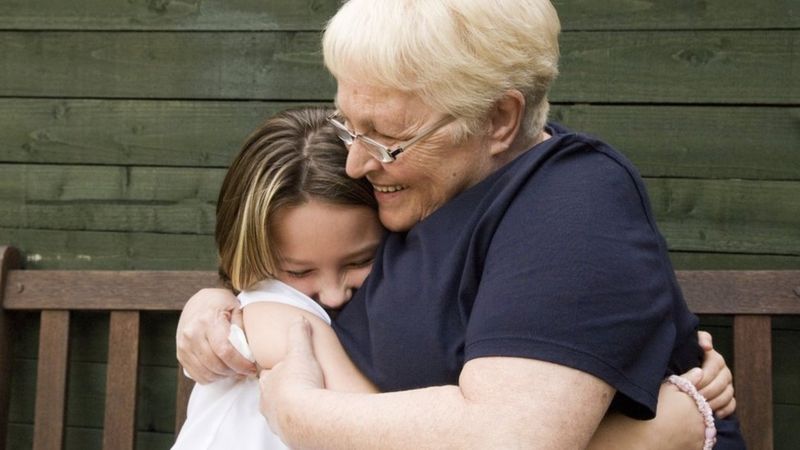
National Office
Please enter the office location/term above to receive results for your closest office as well as information matches
The past year has been tough for most of us. It’s been hard not being able to go outside, see friends and relatives or take a holiday.
But one of the hardest things, particularly for those who live alone, has been the absence of touch. Social distancing, along with enforced isolation, has meant that some people have gone more than a year without physical contact from another human being. That lack of touch has been more painful for some of us, than not being able to go to the shops or see friends.
The long-awaited end of lockdown means that we will be able, not just to see, but to hug our loved ones again. For those of us who have been deprived of close physical contact, the prospect of a big hug with our adult children or grandchildren is the thing we are looking forward to more than anything else.
So why are hugs so important? And why do some of us feel worried about hugging again?
It seems that, as mammals, touch is fundamental to our existence. We are social animals, and touch is one of the ways we communicate with each other. As babies, touch is essential to our ability to grow: deprived of touch, even baby rats become anxious and fearful, and their immune system becomes weaker. Amongst chimpanzees, grooming (picking through another chimp’s fur to remove dirt) is a way of reducing aggression and improving co-operation.
In humans, babies crave touch even more than food, and a distressed baby is soothed and calmed by hugs and cuddles. Premature babies are much more likely to survive if they have ‘kangaroo care’: instead of spending all their time in incubators, they have long periods resting on their mother’s bare skin.
Touch works by activating the network of nerves close to the skin that link directly to our brains, where they stimulate the release of two types of “feel-good” chemical: endorphins, which are a little like opioid drugs, relieving pain and reducing stress, and oxytocin, sometimes known as the “love” hormone. Like the endorphins, oxytocin reduces stress, but also helps us feel connected to others. “In times of high stress – the loss of a job, or a bereavement, for example – having more touch from others helps us cope better, particularly in calming the effects of cortisol,” the neuroscientist Dr Katerina Fotopoulo told the Guardian.
There are health benefits too. People who have fewer hugs are more likely to become sick when exposed to a cold virus, one study has found.
Some of us may feel nervous about hugging again. We’ve been warned of the dangers for such a long time that the prospect of a hug can be anxiety-inducing. Dire warnings in the media about the Indian variant may make us feel cautious about transmitting or catching the virus even if we’ve had both vaccines. If you’re naturally a little shy or prone to worry, going straight to hugging after avoiding human contact for more than a year might feel like a step too far.
If that’s the case for you, then experts advise that you try hugging cautiously: if you can, meet outdoors rather than indoors, wear a mask and have a short hug rather than the long bear hug you might previously have enjoyed. It’s a good idea, too, to check with the other person that they’re happy to be hugged. Fortunately, if both parties have had both jabs, scientists say you’ll be very safe.
If hugging feels a little strange at first, you’ll be surprised at how quickly it will become normal again. Now, surely, is the time to put the worries of the past year behind us and enjoy the benefits of physical contact with our loved ones. So hug away – and let those endorphins flow.
If you would like to find out more about Radfield Home Care and the care support services offered, you can visit www.radfieldhomecare.co.uk or contact the branch directly on [email protected] or 01424 559 202
Get in touch with your local Radfield Home Care office today and find out more about the support we offer and the difference we can make.